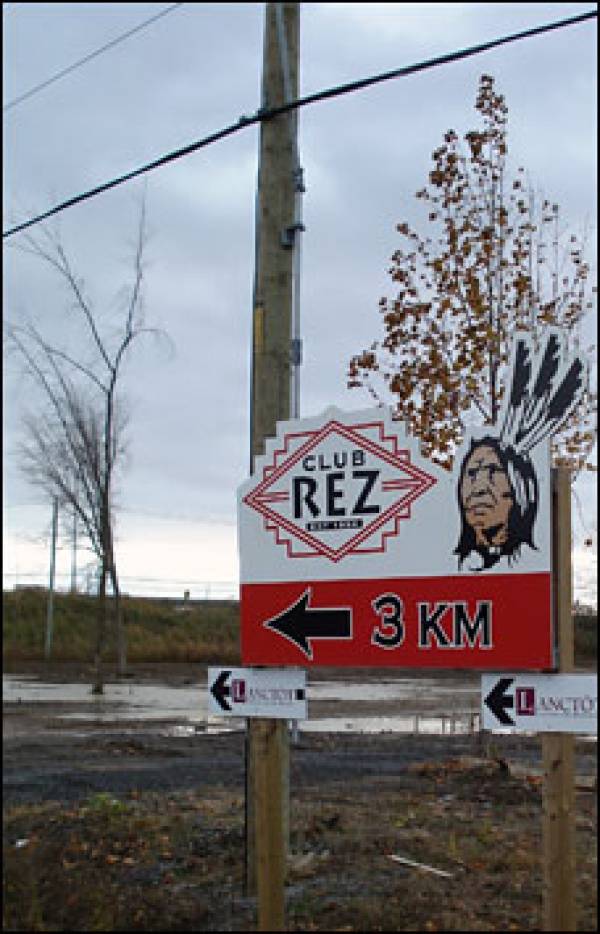Online Poker Cheating Scandal: It's Not Joe Norton's Week

An online poker cheating scandal has thrust the most unlikeliest of men into the spotlight.
By most accounts, Grand Chief of the Kahnawake Mohawks Joe Norton is a good honest man and he is also industrious.
The Washington Post explains just how industrious:
While in his twenties, Norton worked as an ironworker helping to build the World Trade Center in New York City. At the age of 28 he was elected to the Mohawk Council of Kahnawake, the governing body for the 8,000-member tribe located minutes from Montreal. Two years later, Norton took over as grand chief, a position he held for more than two decades.
For years, the Kahnawake had relied on cigarette sales and payments from the federal government to get by. Under Norton, they began to look at gambling as a way to lift up the tribe's economic fortunes. In the mid-1990s, Norton promoted an effort to open a land-based casino on the reservation, but the tribe voted it down. A second referendum was also rejected.
Norton and the Kahnawake shifted their focus to Internet gambling.
Internet gambling may be great for the Mohawks, but this week's big revenue generator is turning into a massive headache for Norton.
He's at the center of a firestorm involving a high profile insider cheating scandal at two of the online poker rooms he's in charge of overseeing. And Norton will find himself profiled on CBS' 60 Minutes Sunday night. By the looks of things, the segment doesn't look entirely flattering.
From the 60 Minutes promo:
"He was raising, just really, really bad hands against very good hands. He seemed to play crazy," says Todd Witteles, a computer scientist turned poker player who believed he was losing too much to the same person. "It seemed like he was giving his money away. Except the only thing was, he wasn't losing. He was playing in a style that was sure to lose, but he was killing the game day after day," Witteles, who played a key detective role, remembers.
Michael Josem, a player and a computer security expert, plotted the odds of such consistent success. "We did the mathematical analysis to find that they were winning at about 15 standard deviations above the mean...approximately equivalent to winning a one-in-a-million jackpot six consecutive times." The cheating netted more than $20 million.
According to the Washington Post, Norton played an instrumental role in helping to set up Mohawk Internet Technologies (MIT), which collects millions in fees annually online gambling licensees who must maintain their sites on the Kahnawake servers for a minimum of three years.
In 2006, he bought Absolute Poker and UltimateBet, though he didn't announce the purchases until a year later. These were the two firms that are profiled on 60 Minutes Sunday night. And his purchase of the company occurred prior to the "cheating scandal" that took place at those two sites.
Paul Liggett, COO of Absolute Poker and Ultimate Bet, insists that Norton is in no way the bad guy in all of this.
"Joe Norton completely restructured the management team as soon he became aware that cheating had occurred on the AP site," said Liggett, who was appointed by Norton. "The new team brought in a Compliance Officer and two Security Managers, and it established risk assessment procedures and ongoing internal audits."
Norton and his crew have been working effortlessly to ensure Absolute Poker and UltimateBet ridded all past improprieties. They've even taken a chapter from the old ValuJet handbook - changing the company's name.
ValuJet was forced to do so following a series of incidents involving its commercial aircrafts that culminated in a deadly crash in 1996 over the Florida Everglades. They too embraced a new management team and later changed their name to AirTran, which has enjoyed great success over the past 10 plus years. And Norton hopes to the same will happen with his revamped company, now calling itself Cereus.
Norton might be wanting to change his name following the 60 Minutes airing, depending on how he is depicted. The irony in all of this being that Norton and the Kahnawakes have helped legitimize the online gambling industry. Unfortunately, they've also been thrust into the role of cleaning up the messes caused by others.
Christopher Costigan, Gambling911.com Publisher













